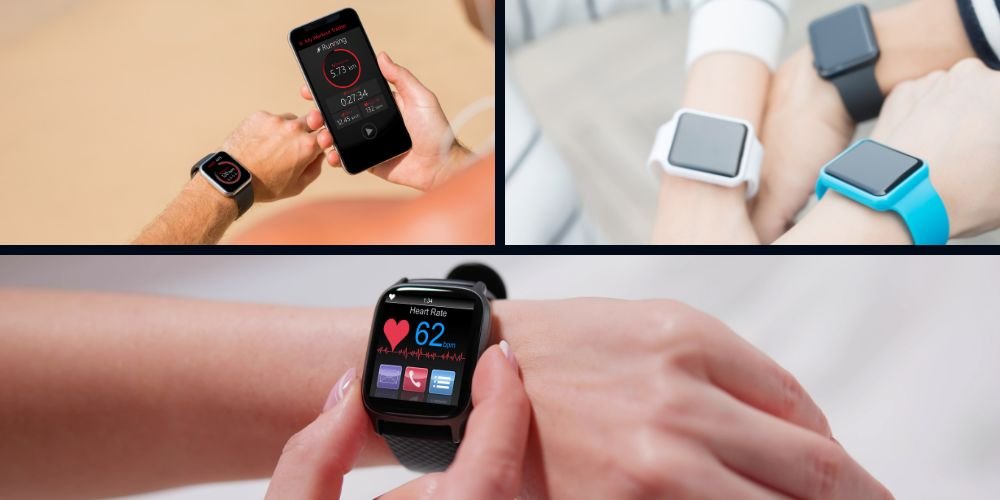Health wearables have emerged as a transformative tool in pursuing better personal health and wellness. In a world where health is paramount, these innovative devices reshape how individuals monitor and manage their well-being. This comprehensive exploration delves into the realm of health wearables, uncovering their significance, applications across various aspects of healthcare, and their transformative potential for creating a healthier and more informed society.
The Significance of Health Wearables
Health wearables represent a revolutionary shift in how we approach health monitoring and management. These devices give individuals the tools and insights to make informed decisions regarding their well-being. This shift towards personalized health monitoring carries substantial implications, from early disease detection to proactive health management.
Monitoring Vital Signs and Biometrics
One primary benefit of health wearables is the continuous monitoring of vital signs and biometrics. From heart rate and sleep patterns to activity and blood glucose levels, these devices provide real-time data that empowers individuals to take charge of their health.
Fitness and Lifestyle Enhancement
They are not limited to health diagnostics; they also play a pivotal role in enhancing fitness and lifestyle. These devices track physical activity calories burned and offer personalized fitness recommendations, encouraging a more active and healthier lifestyle.
Chronic Disease Management
Health wearables provide a lifeline for individuals with chronic diseases such as diabetes or hypertension. Continuous monitoring and data collection enable patients and their healthcare providers to manage these conditions more effectively, reducing the risk of complications and hospitalizations.
Techniques in Health Wearables
Health wearables harness various techniques and technologies to monitor and track health data, rendering them indispensable in our quest for better health and wellness.
Sensors and Biometric Measurement
Sensors and biometric measurement technology form the backbone of health wearables. These devices employ a range of sensors to capture data such as heart rate, temperature, and motion, providing users with comprehensive insights into their health.
Data Analysis and Health Algorithms
Advanced data analysis and health algorithms process the data collected by wearables, transforming raw data into meaningful insights. Machine learning and AI-driven algorithms help identify trends, anomalies, and potential health issues, allowing early intervention.
Connectivity and Mobile Apps
Most health wearables seamlessly integrate with mobile apps, allowing users to access their health data in real-time and share it with healthcare professionals. This connectivity enhances communication and ensures that health data is used effectively in decision-making.
Applications of Health Wearables
Health wearables find applications across diverse aspects of healthcare, empowering individuals and healthcare providers alike to make more informed decisions regarding health and wellness.
Remote Patient Monitoring
In healthcare, remote patient monitoring using health wearables is becoming increasingly common. Patients can be monitored from the comfort of their homes, reducing the burden on healthcare facilities and improving patient outcomes.
Personalized Health Insights
They provide users with personalized health insights. Whether it’s tracking progress towards fitness goals, managing stress levels, or improving sleep quality, these devices offer actionable recommendations to enhance overall well-being.
Early Disease Detection
Early disease detection is a critical application of health wearables. By continuously monitoring health metrics, these devices can alert users and healthcare professionals to potential health issues, enabling early intervention and better outcomes.
Challenges and Ethical Considerations
While adopting health wearables holds immense promise, it also presents challenges and ethical considerations that necessitate careful consideration.
Data Privacy and Security
Collecting and analyzing highly sensitive personal health data raises legitimate concerns about privacy and security. Safeguarding individuals’ health information is paramount, and robust data protection measures must be in place to protect against unauthorized access and breaches.
Accuracy and Reliability
Ensuring the accuracy and reliability of health wearables is crucial for building user trust. Users must have confidence in the data these devices provide. Manufacturers must adhere to stringent quality standards and calibration processes to ensure that the health data collected is accurate and dependable.
Access and Affordability
Ensuring equitable access to health wearables is essential to prevent disparities in healthcare. Efforts must be made to make these devices affordable and accessible to individuals from all socio-economic backgrounds, preventing a digital health divide.
The Future of Health Wearables
They are poised to assume an even more substantial role in shaping the future of personal health and healthcare, fostering proactive health management and well-informed decision-making.
Telemedicine Integration
As telemedicine continues to gain traction, it will play a vital role in connecting patients with healthcare providers. Real-time health data sharing will enhance remote diagnosis and treatment, bringing healthcare to individuals wherever they are.
Wearable Health Ecosystems
Integrating health wearables into broader health ecosystems will create a seamless user experience. Wearables will communicate with electronic health records, ensuring that healthcare professionals can access a comprehensive view of a patient’s health.
Prevention-Oriented Healthcare
With the wealth of data generated by health wearables, healthcare will shift towards a more prevention-oriented model. Predictive analytics will enable proactive health management, reducing the burden on reactive healthcare interventions.
Conclusion
Health wearables are not just devices for tracking health data but enablers of a healthier and more informed society. Their significance lies in their capacity to empower individuals to take control of their health, from monitoring vital signs to making lifestyle improvements. As health wearables evolve, ethical considerations, data privacy, and accessibility must guide their development and deployment.
They envision a future where health is managed proactively, personalized insights drive well-being, and individuals are empowered to live healthier, more fulfilling lives. They are the architects of a future where health and wellness are within everyone’s reach.





